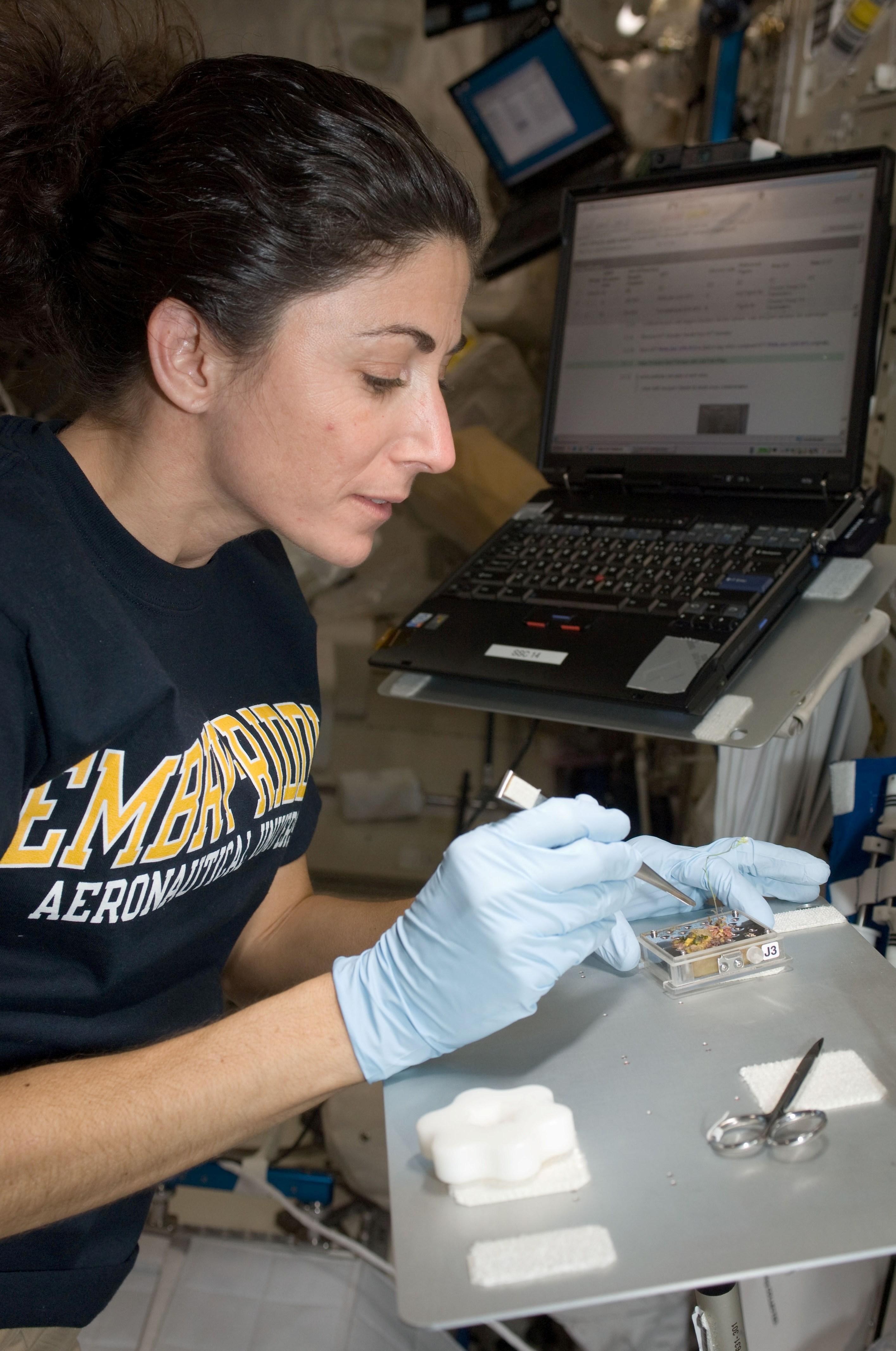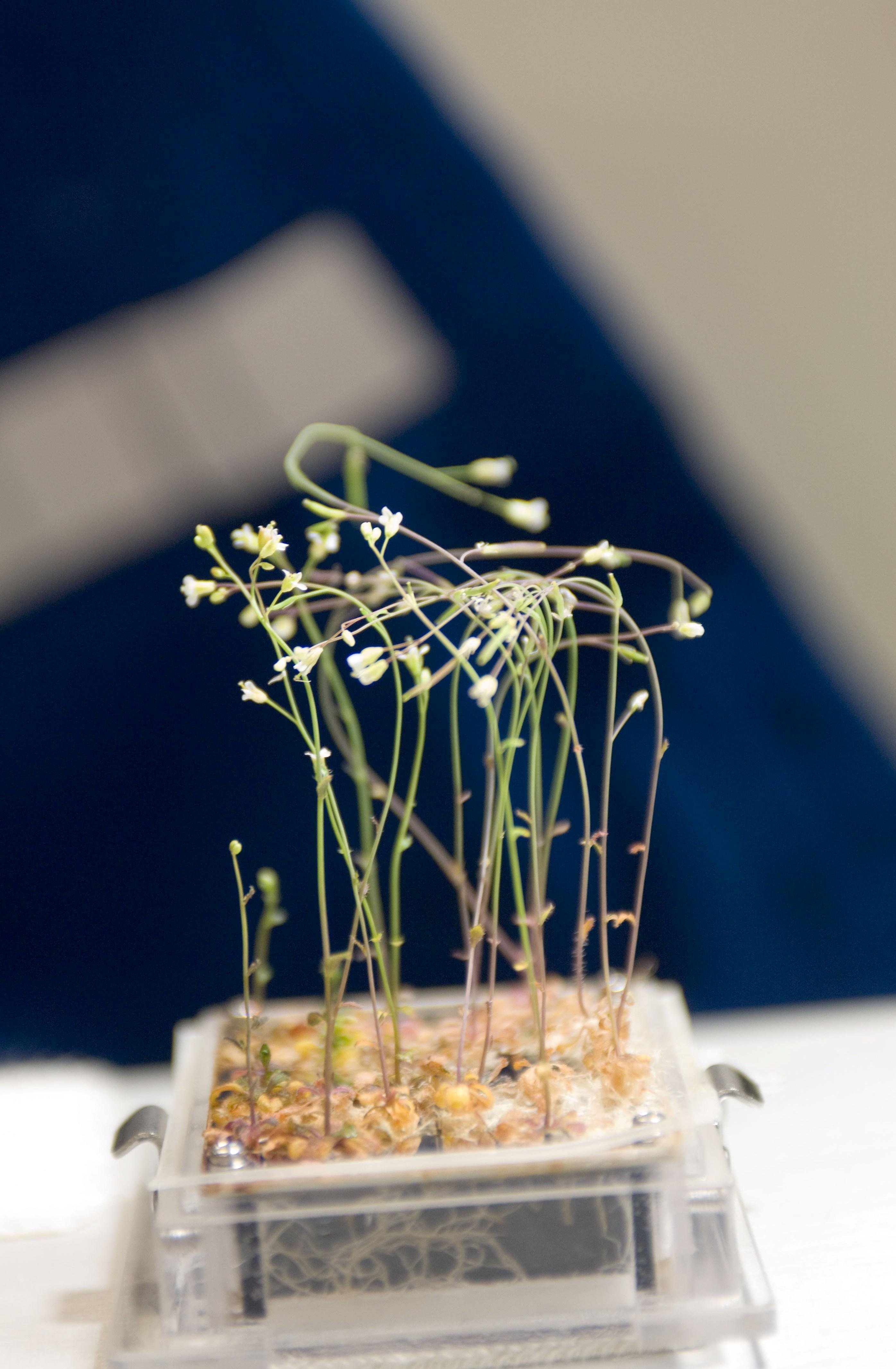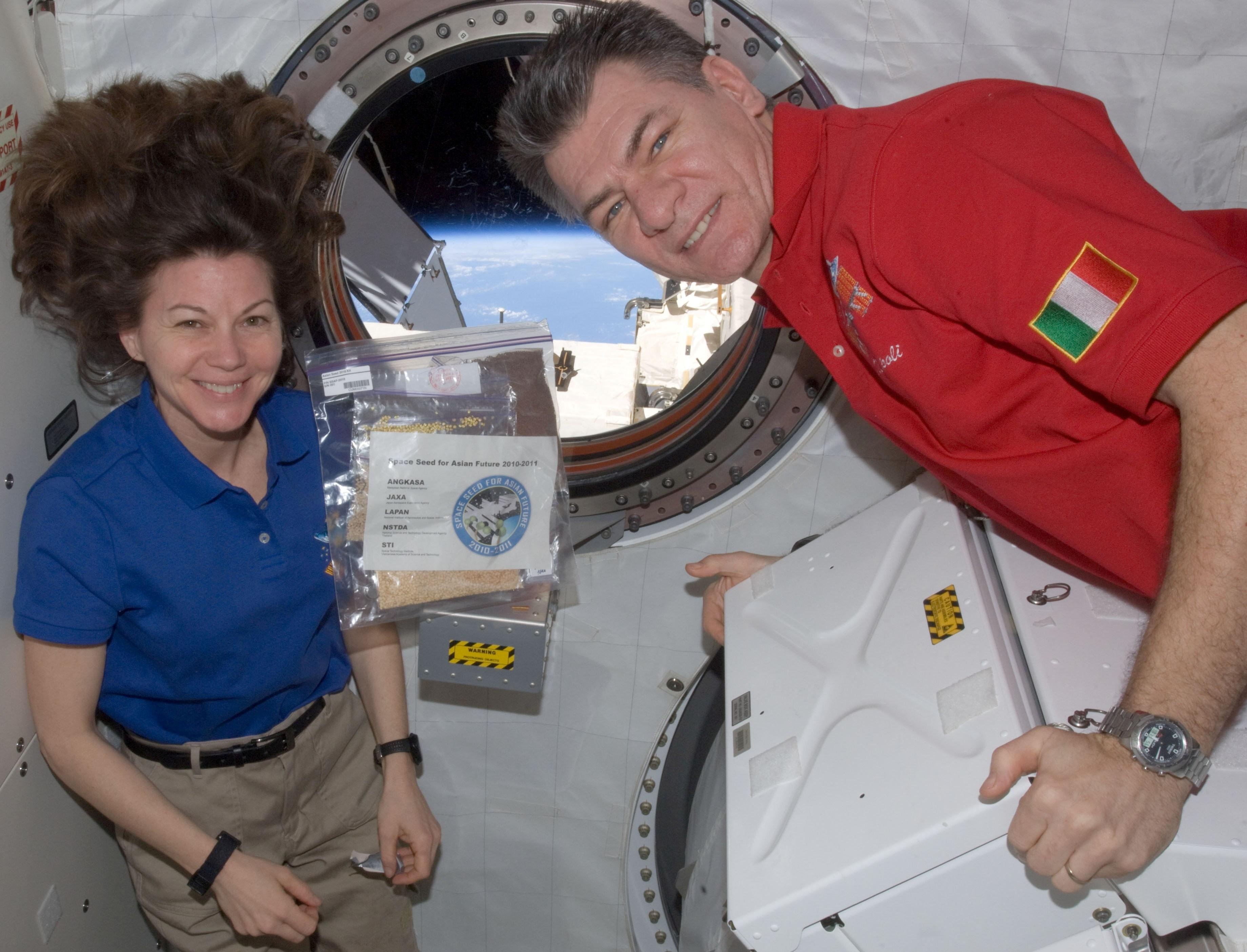- completed
[Space Seed]
Life Cycle of Higher Plants under Microgravity Conditions
- Biology and Biotechnology
ISS Science for Everyone
SCIENCE OBJECTIVES FOR EVERYONE
Life Cycles of Higher Plants Under Microgravity Conditions (SpaceSeed) cultivates Arabidopsis thaliana (a small flowering plant) in microgravity to improve the productivity of crops in space as well as for understanding the role of gravity in regulating the life cycle of higher plants.
SCIENCE RESULTS FOR EVERYONE
Eating and breathing. These are both important in space, and plants can help with both. The Space Seed experiment grows plants in microgravity to find out the role gravity plays in regulating the seed-to-seed life cycle. Results show seeds grow and develope leaves, flowers, and fruit regardless of the amount of gravity. Leaves under microgravity remained dark green longer, though, indicating that microgravity delays leaf aging. One gene involved in supporting flower stalks is suppressed, while four other genes are enhanced. This indicates that microgravity changes the way some genes behave in cell growth in plants.
Experiment Description
RESEARCH OVERVIEW
- Since gravity strongly influences developmental processes throughout the life cycle of higher plants on Earth, this research is undertaken to cultivate Arabidopsis thaliana on the JEM, whereby the life cycle is relatively short.
- The controlling mechanism of developmental processes in Arabidopsis has been physiologically and genetically studied with various mutants and transgenic plants on Earth. The experiments with Arabidopsis under the microgravity environment on JEM will provide an abundance of important and useful information necessary for improving the productivity of crops in space, as well as for understanding the role of gravity in regulating the life cycle of higher plants.
Media Gallery



Publications
PRINCIPAL INVESTIGATOR(S)
KAMISAKA Seiichiro [University of Toyama]
Unless specified otherwise, rights to all images belong to ©JAXA



